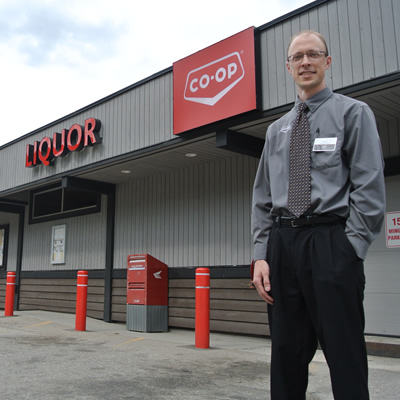Look beyond the present
A large improvement in optimism is making the business barometer rise
If you are reading this as an entrepreneur, or an employee involved in management or supportive of management, you are associated with a business that has done something right the last few years.
Many businesses did not survive this last recession, which was the worst since the major depression in the ’30s. Interestingly, the Globe & Mail in the last couple of days has reported that U.S. manufacturing firms are investing in expanding production levels dramatically. This is a sign that economists have been looking for in the past few months. It is refreshing to see some positive action. In this column, I’d like to share some information from an article in the latest CAmagazine describing a global viewpoint on future business opportunities and also a viewpoint of the Canadian Federation of Independent Business (CFIB).
Focusing on sustainability
The CAmagazine article is entitled A New Era of Sustainability. The source of information in the article is UN Global Compact—Accenture CEO Study. The following is a description of the source information: “Provides an overview of CEO perspectives on progress to date, challenges ahead and the journey towards a sustainable economy.” The report is based on an extensive study of nearly 1,000 Global Compact CEOs. To give you a flavour of the feelings of these CEOs, here is a quote in the study report piece: “We do not just operate today without any thought of tomorrow.”
The study report has these key opinions by CEOs:
- 72 per cent of CEOs cite brand, trust and reputation as one of the top factors driving them to take action on sustainability issues. Revenue growth and cost reduction is second with 44 per cent.
- 72 per cent of CEOs see education as the global development issue most critical to address for the future success of their business. Climate change is second with 66 per cent.
- 58 per cent of CEOs identify consumers as the most important stakeholder group that will impact the way they manage societal expectations. Employees were second with 45 per cent.
- 91 per cent of CEOs report that their company will employ new technologies (e.g. renewable energy, energy efficiency, information and communication technologies) to address sustainability issues over the next five years.
- 88 per cent of CEOs believe that they should be integrating sustainability through their supply chain. Only 54 per cent believe that this has been achieved within their company.
So it is pretty obvious that the major players in the world of business believe that for a business to survive or be sustainable, it must look beyond the present. This is true whether our businesses are large, medium-sized or small.
A brighter year ahead
Ted Mallett is vice-president and chief economist who is responsible for CFIB’s policy research information gathering and membership survey activities. In a January 2011 message, Mallett said: “Business confidence made a strong upward move in December, a signal that the economy is at last finding some firmer footing. CFIB’s Business Barometer Index rebounded to 69.3 in the final month of the year, more than five points above November’s level.”
To make that number meaningful, I will quote their explanation of it: “Measured on a scale between 0 and 100, an index level above 50 means owners expecting their business’s performance to be stronger in the next year outnumber those expecting weaker performance. According to past results, index levels normally range between 65 and 75 when the economy is growing.” A look at their graph displaying this number since 2001 shows 69.3 to be equal to early 2007 numbers before the recession and somewhat higher than most of the results during the 2002 to 2007 period.
CFIB goes on to explain: “Interestingly, it wasn’t holiday retail spending that accounted for the brighter sentiment. Instead, a large improvement in optimism among manufacturers, natural resource businesses, financial services and personal services firms pushed the overall index upward. Nonetheless, there are still some economic weak spots; the hospitality sector index is still only 57.0, while the arts/ recreation and construction sectors are at 62.1 and 63.8 respectively.”
This information may appear a bit technical, but it does give us confidence to have long-term goals in manoeuvring our businesses through the next decade, not just managing by the seat of our pants.






Comments